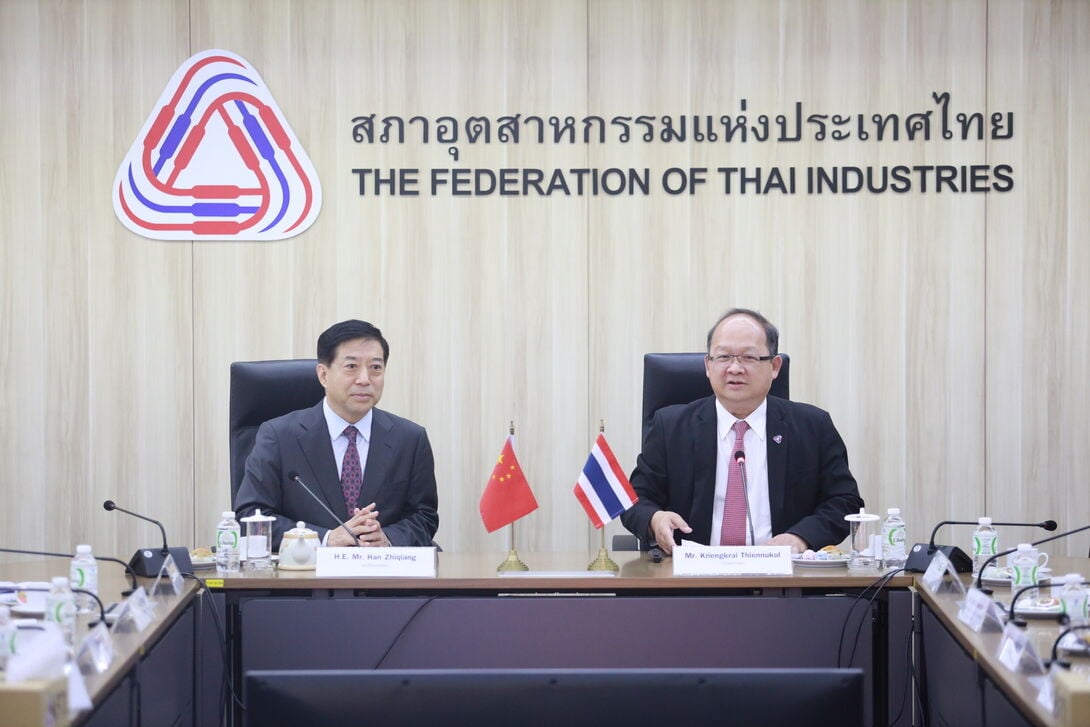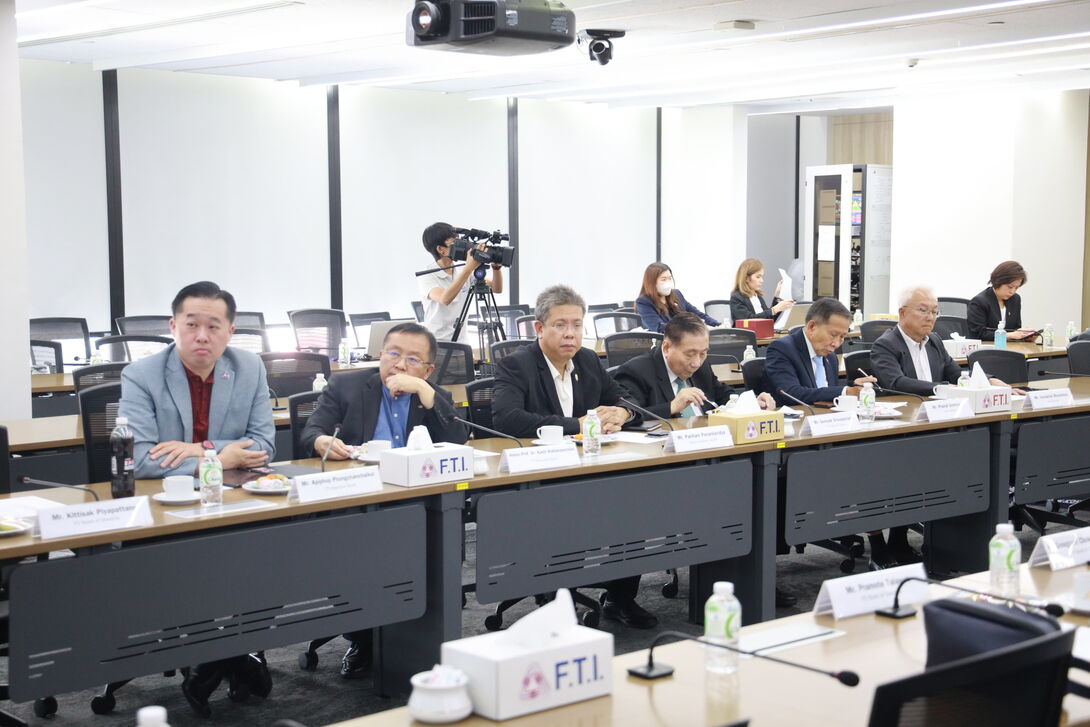FTI seeks Chinese investment boost in Thai EV, food, and healthcare sectors

The Federation of Thai Industries (FTI) is seeking to boost Chinese investment in Thailand, focusing on the electric vehicle (EV), food, and healthcare sectors, through increased business collaboration with Beijing.
Kriengkrai Thiennukul, chairman of the FTI, recently met with the Chinese ambassador to Thailand, Han Zhiqiang, to discuss potential investment opportunities. Kriengkrai envisions Thailand as a production base for Chinese companies, acting as a gateway to the ASEAN region.
To facilitate this, the FTI established a Thai-Chinese economic institute to promote trade and investment between the two nations. The institute collaborates with other organisations, such as the China Council for the Promotion of International Trade, to develop and advance new trade and investment initiatives. Prospective investors will be connected to 45 industry clubs under the FTI, as well as logistics and supply chain systems to support their ventures.
Kriengkrai believes that this collaboration will enhance Thailand’s global competitiveness and further reinforce domestic industries. One of the key sectors in Thailand is EV manufacturing, which the government is actively promoting.

In 2021, the Cabinet approved a series of incentives, including tax cuts and subsidies, to encourage EV consumption and production between 2022 and 2023. Depending on the type and model of the vehicle, subsidies range from 70,000 baht to 150,000 baht, while reduced excise taxes and import duties apply to completely knocked down and completely built-up units.
Kriengkrai noted that many Chinese EV manufacturers have already invested in Thailand and urged the Chinese government to support the country’s ambition to become a major EV production and export hub. The National EV Policy Committee announced in 2021 that it aims for EVs to account for 50% of locally produced vehicles by 2030, as part of an ambitious plan to establish Thailand as a regional EV centre.
The food and healthcare sectors also offer significant growth potential for investors. Thailand’s abundance of raw materials for food processing supports the development of “future food” – new food products that align with changing lifestyles, according to Kriengkrai. Additionally, the healthcare industry is expected to experience strong growth due to its relevance to ageing populations, reported Bangkok Post.
Latest Thailand News
Follow The Thaiger on Google News:


























